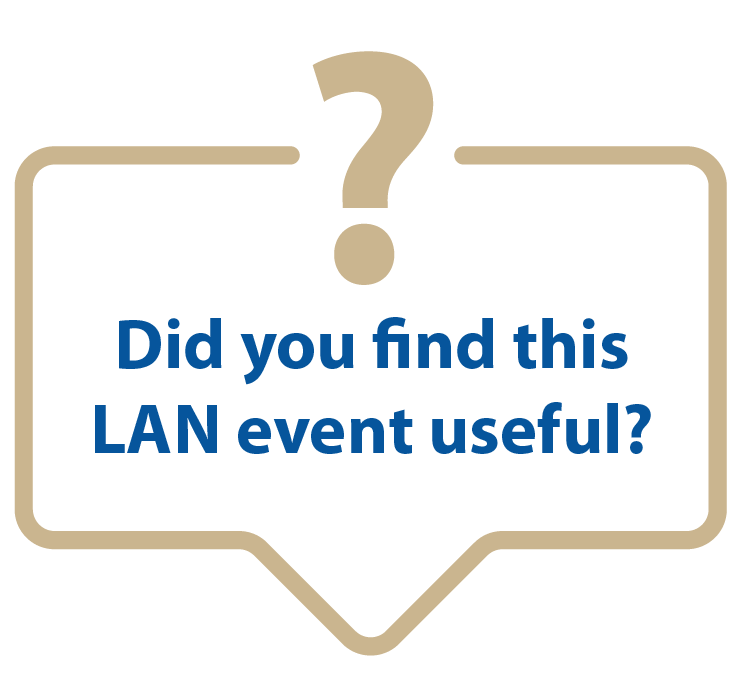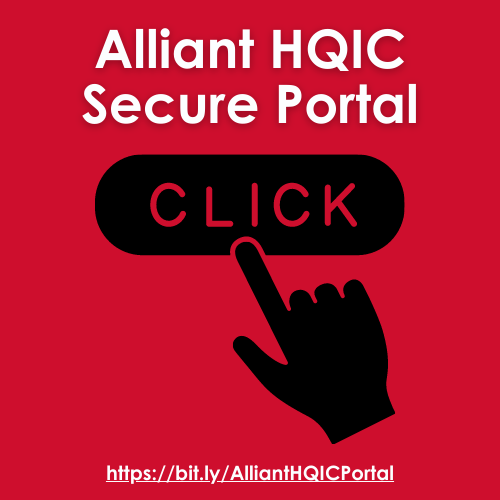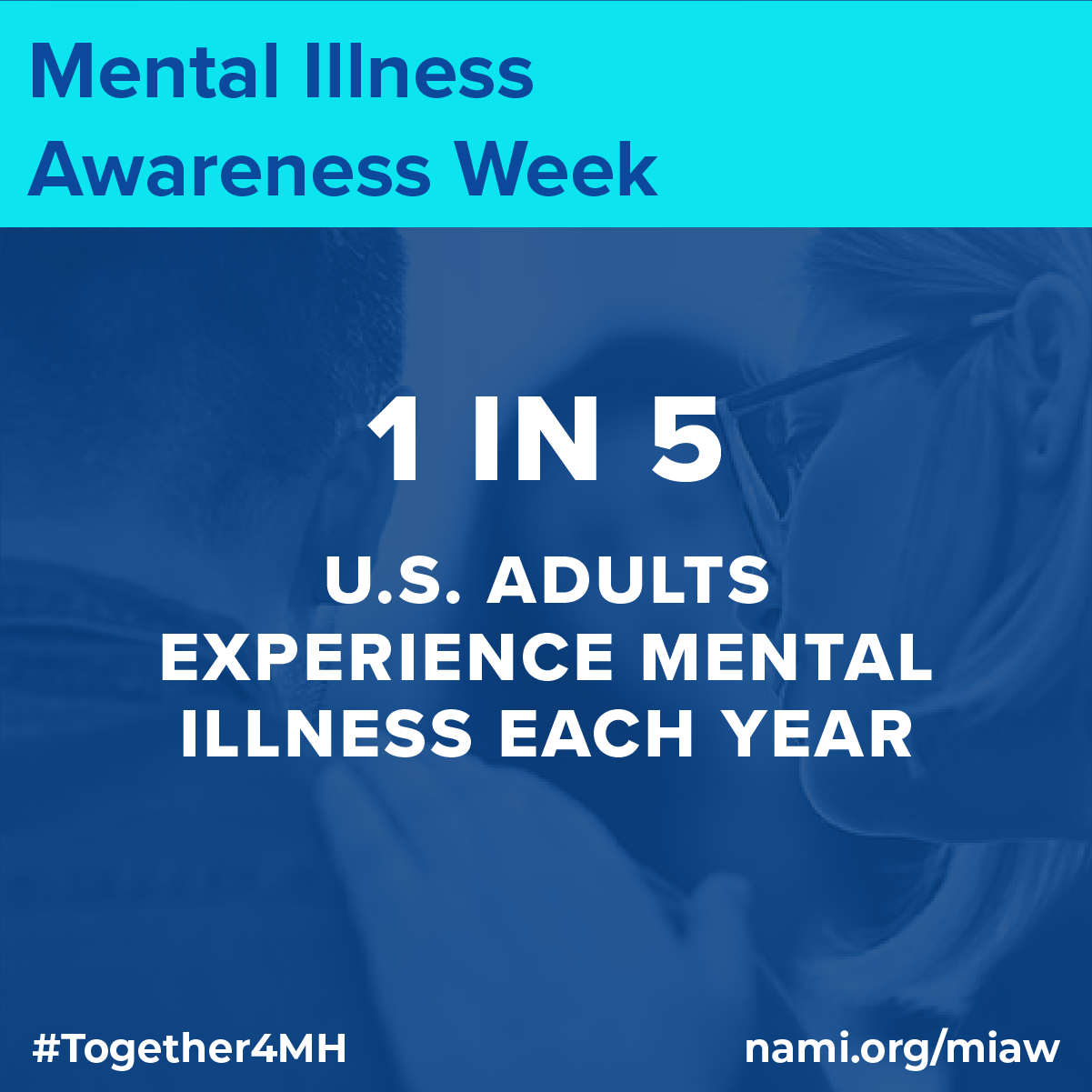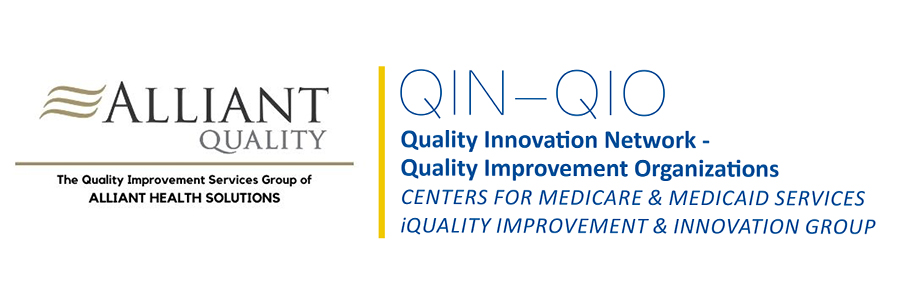|
|
|
|
This monthly newsletter highlights the latest insights, resources, and evidence-based best practices.
Our hope is that this newsletter makes it easy for you to stay on top of trends and allows you to provide the best possible care for those you work with and serve.
|
|
|

Biden-Harris Administration to Expand Vaccination Requirements for Health Care Settings
The Biden-Harris Administration will require COVID-19 vaccination of staff within all Medicare and Medicaid-certified facilities to protect both them and patients from the virus and its more contagious Delta variant. Facilities across the country should make efforts now to get health care staff vaccinated to ensure compliance when the rule takes effect.
The Centers for Medicare & Medicaid Services (CMS), in collaboration with the Centers for Disease Control and Prevention (CDC), announced that emergency regulations requiring vaccinations for nursing home workers will be expanded to include hospitals, dialysis facilities, ambulatory surgical settings and home health agencies, among others, as a condition for participating in the Medicare and Medicaid programs. The decision was based on the continued and growing spread of the virus in health care settings, especially in parts of the United States with a higher incidence of COVID-19.
CMS is developing an Interim Final Rule with Comment Period that will be issued in October. CMS expects certified Medicare and Medicaid facilities to act in the best interest of patients and staff by complying with new COVID-19 vaccination requirements. Unvaccinated health care workers employed in these facilities are urged to begin the process immediately. In addition, facilities are urged to use all available resources to support employee vaccinations, including employee education and clinics, as they work to meet new federal requirements.
|
Upcoming Learning and Action Network (LAN) Events
Community Coalitions and HQIC LAN: Applying a Framework to Advance Health Equity
Tuesday, October 26 at 2 p.m. ET | 1 p.m. CT
Advancing health equity requires a multifaceted approach. Join the conversation with our esteemed speaker as we learn about the Brooks PETAL Framework and how to use the framework as a guide for integrating a community driven approach to health equity into our work. Following this session, learners will be better able to:
- Identify an approach for integrating health equity
- Adopt the Brooks PETAL Health Equity Framework (Prioritize health equity; Engage the community; Target health disparities; Act on the data; and Learn and improve)
Register Now | View Agenda
HQIC LAN: Exploring Strategies to Prevent Hypoglycemia in Hospitalized Patients, hosted by Compass (IHC HQIC)
Thursday, October 28 at 1 p.m. ET | 12 p.m. CT
This course will discuss the top causes of inpatient hypoglycemia and offer strategies to prevent their occurrence. In addition, a tool will be offered to aid hospitals in determining which processes most commonly lead to hypoglycemia in their patients. Tips and tricks will be provided to small hospitals with low case numbers that are having difficulty finding the data.
Register Now
COVID Office Hours-IP Chat for Infection Preventionists
Alliant is hosting COVID Office Hours–IP Chat for Infection Preventionists and other healthcare providers to discuss the challenges and solutions of COVID patients in hospitals. The Office Hours–IP Chat is held weekly and led by Alliant’s Infection Prevention Specialist Amy Ward, MS, BSN, RN, CIC, who facilitates the open discussion and answer any questions. Questions? Email Amy Ward at amy.ward@allianthealth.org. Join the COVID Office Hours-IP Chat
View All Upcoming Events Here
Past Learning and Action Network (LAN) Events
HQIC LAN: Exploring Sepsis Strategies: Part 2 - Care Coordination and Preventing Sepsis-Related Readmission
Recorded on September 30
Part 2 focused on preventing sepsis-related harm and avoidable readmissions using effective care coordination and hand-off strategies to the next level of care provider.
View Slides

If Yes, Click Below.
Click here if you attended the September LAN event and were able to "use tomorrow" what you heard during the webinar.
View All Previous LAN Event Recordings
Upcoming Partner Events
Alliant HQIC hospitals are invited to attend educational events provided by other HQICs. Upon login, you will have to create an account.
HQIC Community of Practice Call: Readmission Reduction: Transforming Into a Care Partner Hospital
Thursday, October 14 at 1 p.m. ET
This monthly call series is open to all Hospital Quality Improvement Contractors (HQIC) staff members and hospital stakeholders to help support the delivery and spread of quality improvement initiatives. This month, Healthcare Association of New York State (HANYS) staff will share the fundamentals of a care partner program and discuss its potential to reduce avoidable readmissions and improve patient perceptions of care quality, safety and length of stay. HANYS will describe the sprint work necessary to transform an organization and share a patient story about its impact. Register Now
Large Hospital Affinity Group
Friday, October 29 at 1 p.m. ET | 12 p.m. CT
Hosted by the Convergence Health HQIC, the HQIC Large Hospital Affinity Group meets monthly to collaborate and address opportunities for improving quality outcomes. The event is facilitated by Steve Tremain, MD, FACPE.
Register Now
In addition to the main group meetings, members are encouraged to join one or more of the subgroups:
Register Here for the ADE/Opioid Workgroup on Oct. 28 at 3:30 p.m. ET | 2:30 p.m. CT
Register Here for the HAPI Workgroup on Oct. 26 at 2 p.m. ET | 1 p.m. CT
Register Here for the Readmissions Workgroup on Oct. 19 at 1 p.m. ET | 12 p.m. CT
Register Here for the CAUTI/CLABSI Workgroup on Oct. 22 at 12 p.m. ET | 11 a.m. CT
The Science of Pain: Evidence-Based Approaches to Treatment
Wednesday, October 6 at 2 p.m. ET | 1 p.m. CT
Featured speaker Dr. Hayden Center will provide an overview of the neurobiology of pain. Participants will learn how opioids are used to treat pain and the limitations of this strategy.
Register Now | View Agenda
Louisiana Only: Opioid Overdose Prevention and Naloxone Rescue
Wednesday, October 13 at 2 p.m. ET | 1 p.m. CT
In this session, attendees will learn key information about opioid use prevention, national and state (Louisiana) opioid overdose data, how to correctly use NARCAN (Naloxone) and Good Samaritan Laws specific to Louisiana. The presenter will also provide resources for Substance Use Disorder (SUD) treatment in Louisiana and answer questions from attendees.
Register Now | View Agenda
|
 Alliant HQIC Online Portal Alliant HQIC Online Portal
Access the Alliant HQIC portal to view your assessments and measurement data, and chat with other HQIC-enrolled hospitals to share best practices, barriers and solutions. Download Portal Instructions to Get Started
Behavioral Health/Opioid Stewardship
Opioid-Related Hospital Use Map
The Agency for Healthcare Research and Quality (AHRQ) has updated the Opioid-Related Hospital Use Map with the latest inpatient and emergency department data. The interactive map can be used to examine overall opioid-related inpatient and treat-and-release emergency department rates by state as well as filtering by age, sex and other characteristics. View the Map
National Prescription Drug Take Back Day
Oct. 23 is National Prescription Drug Take Back Day. The National Prescription Drug Take Back Day aims to provide a safe, convenient, and responsible means of disposing of prescription drugs, while also educating the general public about the potential for abuse of medications. Learn More
Bringing Awareness to Mental Illness and Depression 
Oct. 3-9 is National Mental Illness Awareness Week and Oct. 7 National Depression Screening Day. How does your hospital address depression screening? What about mental illness? Did you know that depression is one example of mental illness? Major depression is one of the most common mental illnesses, affecting 6.7% (more than 16 million) of American adults each year. Depression can occur to anyone, at any age, of any race or ethnic group.
Research has shown that depressed inpatients have poorer outcomes, increased length of stay and greater vulnerability to hospital readmission. It is particularly common among elderly hospitalized patients, especially those with poor physical health, substance use disorders, hip fractures or stroke. Yet depression often goes unrecognized, undiagnosed, and, therefore, untreated in hospitals.
There is also a growing awareness of the link between depression and prescription opioids. The Journal of General Internal Medicine notes that patients taking prescription opioids for an extended time are more likely to suffer depression. Therefore, people with an opioid use disorder—both prescription and illicit (e.g., heroin, fentanyl) endure the highest level of depressive episodes. Additionally, depression is a common withdrawal symptom from opioids.
How does one know if they may be suffering from depression? What can you do as a healthcare professional if you feel someone may be experiencing depression? There are online screening resources available. The Mental Health America screening tools are free, anonymous and confidential.
Screenings are not a professional diagnosis. Screenings point out the presence or absence of depressive symptoms and provide a referral for further evaluation if needed. Speak to your physician if you think you may be depressed or based on the results of a depression screening.
Being more aware of the relationship between opioids and depression can help treat those with substance use disorder. Read more about depression and opioids here: Depression and Opioids: How Painkillers Affect Mental Health.
Patient Safety
Adverse Drug Events
CancelRX: An IT Tool to Reduce Medication Discrepancies in Outpatient Settings
Prior research has found that ambulatory electronic health records cannot communicate medication discontinuation instructions to pharmacies. In this study, the implementation of the CancelRx system led to a significant, sustained increase in successful medication discontinuations and reduced the time between medication discontinuation in the clinic EHR and pharmacy dispensing software. This may be helpful for hospital discharge as well. Read the Study
Pain Assessment and Management Initiative (PAMI) at UF College of Medicine-Jacksonville
The overall goal of PAMI is advancement of multimodal, safe pain management in healthcare systems to improve outcomes and reduce opioid risk. Multimodal management includes a variety of pharmacologic and non-pharmacologic interventions to address opioid stewardship, discharge planning and safe pain management.
Visit the PAMI website for free educational materials on safe pain management practices for clinicians and patients and access to all PAMI products. Educational materials include:
- Pain Management and Dosing Guide
- Discharge Planning Toolkit for Pain
- Patient Educational Videos
- Non-pharmacologic and Distraction Toolkit/Toolbox
- Communication cards in Spanish and Creole with pain terms
Healthcare-Associated Infections
Study Finds Healthcare-Associated Infections Increased During COVID-19 Pandemic
A new study from CDC is the first comprehensive look at the impact of COVID-19 on the incidence of healthcare-associated infections (HAIs) that harm patients in U.S. hospitals. The findings, published in Infection Control & Hospital Epidemiology, show substantial increases nationally in HAI and select antibiotic-resistant infections in 2020 compared to 2019. The increases in 2020 present a strong contrast to the success in reducing these infections before the pandemic. Read the Study
No Urinary Catheter, No CAUTI
It’s not magic, but you can make that urinary catheter disappear with HOUDINI. HOUDINI is an acronym for an evidence-based protocol for assessment and timely removal of urinary catheters. If the patient has any of the following, do not remove the urinary catheter unless specifically instructed:
- H: Hematuria (gross, in retention)
- O: Obstruction
- U: Urological surgery
- D: Decubitus ulcer – the patient has a healing open sacral or perineal wound, other skin damage
- I: I & O critical for patient management and hemodynamic instability
- N: Nursing end-of-life care
- I: Immobilization due to physical constraints (e.g., potentially unstable fracture, multiple traumatic injuries, IABP etc.)
For more information, see:
• Example Checklist
• Journal of Infection Prevention and Control HOUDINI: Make that urinary catheter disappear–nurse-led protocol
C. difficile Infection
Clinical Guidelines for the Management of Clostridioides difficile Infection
The American Society of Colon and Rectal Surgeons (ASCRS) released updated clinical guidelines for the management of Clostridioides difficile infection (CDI) with the aim of ensuring high-quality care to patients. The guidelines cover evaluation, management, surgery and recurrent and refractory of CDI. These guidelines are intended for the use of all practitioners, health care workers and patients who desire information about the management of this condition. View the Guide
Pressure Injuries
COVID-19 Resources for Pressure Injury Prevention
The National Pressure Injury Advisory Panel (NPIAP) is an independent not-for-profit professional organization dedicated to the prevention and management of pressure injuries. Visit the NPIAP website for COVID-19-related resources for pressure injury prevention, including tips for prone positioning.
NHSN Reporting
Report Healthcare Associated Infection Data to NHSN Every Month
All enrolled hospitals are highly encouraged to report Healthcare Associated Infection data to the National Healthcare Safety Network (NHSN) database every month so meaningful data analysis and opportunities for improvement can be identified. Contact Alliant Quality’s Infection Prevention Specialist, Amy Ward, at Amy.Ward@Allianthealth.org with any questions or technical assistance needs. NHSN Monthly Reporting Checklist
Patient and Family Engagement
Restarting and Energizing PFACs–Easy to Implement How-To-Lists
The Consumers for Advancing Patient Safety (CAPS) is an organization that envisions a partnership between consumers and providers to create global healthcare systems that are safe, compassionate and just. Join the Zoom series for Restarting and Energizing PFACs–Easy to Implement How-To-Lists hosted by Consumers Advancing Patient Safety (CAPS) and Healthcare and Patient Partnership Institute (H2Pi). Click here for a Meeting Remotely How-To-List
Next Zoom Webinar: Building and Using an Agenda
Oct 12, 2021, 4 p.m. ET | 3 p.m. CT
Register Here
Health Equity
A Call for Action to Achieve Health Equity
The COVID-19 pandemic has starkly illustrated healthcare’s existing racial and ethnic disparities. AHRQ published a blog authored by their National Advisory Council that emphasizes the need to level the playing field and create a holistic and equitable health care system for all. Read the Blog Post
Rural Health Promotion and Disease Prevention Toolkit Lists
This toolkit for rural health settings is designed to help organizations identify and implement a health promotion program. It also provides resources and best practices for health promotion and disease prevention tailored to rural communities. Get the Toolkit
Achieving Health Equity
The CMS Medicare Learning Network presents a two-hour online course education on how to identify and eliminate health disparities in organizations. Health equity improves the quality of health care for the individuals and families in NQIIC communities and aligns stakeholders’ efforts with CMS strategic goals. Take the Course
Readmissions/Care Transitions
Provider Data for Unplanned Hospital Visits
Click here to review provider data for hospital return days (or excess days in acute care [EDAC]) measures, unplanned readmissions measures and measures of unplanned hospital visits after outpatient procedures. Note that data from the first and second quarters of 2020 were not reported due to the impact of the COVID-19 pandemic.
Polypharmacy Can Lead to Adverse Medication Events and Readmission
Twenty-six percent of hospital readmissions are medication-related, and 70% of these readmissions are possibly preventable. Furthermore, studies have consistently shown that approximately 50% of medications for chronic disease are not taken as prescribed. Couple that with polypharmacy (commonly described as five prescriptions or more) and being elderly, and it’s even more complicated. Forty percent of adults ages 65 and older take five to nine medications, with 18% taking 10 or more.
Engage your providers with Beers! The 2019 AGS Beers Criteria for Older Adults are guidelines for healthcare professionals to help improve the safety of prescribing medications for adults 65 years and older.
|
COVID-19 Care
COVID-19 Vaccine Hesitancy: 12 Things You Need to Know
Johns Hopkins Medicine’s chief diversity officer, Sherita Hill Golden, MD, MHS, wrote a consumer article addressing vaccine hesitancy. The article provides good information for social media posts and consumer-facing communications (i.e., newsletters). Read the Article
National COVID-19 Resiliency Network Call Center
Looking for COVID-19 health information, services and linkage to community resources in your area? Contact the National COVID-19 Resiliency Network (NCRN) Call Center at 1-877-904-5097. Operators are available between 9 a.m-9 p.m. Monday-Friday to assist you.
COVID-19 Vaccine Resources
Immunization Action Coalition Provides Weekly News and Updates
The Immunization Action Coalition (IAC) provides information, updates and resources for vaccinators. Their newsletter includes new and updated vaccine information sheets in 14 languages. View the IAC August Newsletter
Immunocompromised Medicare Patients Can Receive an Additional COVID-19 Dose at No Cost
In response to the Food and Drug Administration’s (FDA) recent action that authorizes an additional dose of the COVID-19 vaccine for immunocompromised individuals, CMS is assuring people with Medicare who qualify for an additional dose that they can receive it at no cost. Medicare will pay for administering an additional dose of COVID-19 vaccines consistent with the modified FDA emergency use authorization announced in August. View the FDA Announcement | CMS COVID-19 Provider Toolkit
Alliant Quality COVID-19 Vaccine Resources
Curated resources and best practices to support long-term care facilities, clinics, providers, and staff as they navigate vaccine distribution. Alliant Quality COVID-19 Vaccine Resources
|
Hospital Heroes
Washington State Hospital Making Mini-Documentary on the Challenges of Rural Healthcare
Critical access hospitals face unique challenges on a daily basis. With limited resources, staff members often wear multiple hats and have multiple roles in caring for their patients and community.
Mid-Valley Hospital is a 25-bed critical access hospital in Omak, Washington. The hospital and its Mid-Valley clinic provide acute care and clinical services to Omak and Okanagan County residents in north central Washington. While the largest county in Washington state, there are only eight people per square mile. Mid-Valley hospital has undertaken a series of videos of what will eventually become a mini-documentary of the challenges of rural healthcare.
Watch on YouTube: A Day in the Life of a Critical Access Hospital Nurse During COVID
|
|
|
Connect with us!
    Click here if you'd like to share your corporate profiles with us and we'll connect with you!
Click here if you'd like to share your corporate profiles with us and we'll connect with you!
|
| |
Hospital Quality Improvement Project Collaborators


|
| |
|
Copyright © 2021, All rights reserved.
Our mailing address is:
Alliant Health Solutions
1455 Lincoln Pkwy
Suite 800
Atlanta, GA 30346
|
For more information about Alliant Quality, visit the website: www.alliantquality.org
For questions or information about free technical assistance, please contact:
Share this email with a friend or colleague:  
|
|
|
|
|